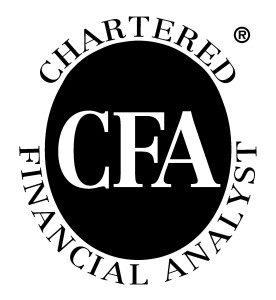 A chartered financial analyst is an expert investment professional who has earned the right to use the internationally recognized chartered financial analyst designation. Also known as charterholders, chartered financial analysts have met the rigorous requirements laid out by the Chartered Financial Analyst Institute, the world’s largest association of investment professional with more than 123,000 members in nearly 150 countries.
A chartered financial analyst is an expert investment professional who has earned the right to use the internationally recognized chartered financial analyst designation. Also known as charterholders, chartered financial analysts have met the rigorous requirements laid out by the Chartered Financial Analyst Institute, the world’s largest association of investment professional with more than 123,000 members in nearly 150 countries.
Becoming a Chartered Financial Analyst
There are five steps that prospective charterholders must successfully complete to earn the prized designation. They must join the Chartered Financial Analyst Institute and become a member of one of its local groups. They also have to amass four years of appropriate work experience as an investment professional and agree to follow the institute’s code of ethics and professional standards. The most difficult step is completing the Chartered Financial Analyst Program. To enter the program, applicants need to have four years of experience in the investment profession, hold a bachelor’s degree, be in their senior year of a bachelor’s degree program, or have a combination of professional and college experience that equals four years.
The Chartered Financial Analyst Program
A graduate-level program that includes three exams and takes two to five years to complete, the Chartered Financial Analyst Program uses a continually evolving, real-world curriculum to instill the knowledge and skills participants need to become top experts in the complex field of investments. Topics covered include economics, corporate finance, derivatives, equity investments, alternate investments, quantitative methods, financial reporting and analysis, fixed income, wealth planning and portfolio management, and ethical and professional standards. Participants generally complete the program with independent study, setting their own pace. But, preparatory classes are also available. The program is divided into three levels of increasing difficulty, each culminating with a six-hour exam. In the first level’s exam, students must demonstrate a firm foundation of basic investment knowledge. For Level II’s exam, they must show the ability to apply that knowledge and appropriate analytical methods. By the final level’s exam, students must smoothly fuse knowledge and analysis with the application of various evaluation tools to prove they understand the principles of successful portfolio management. There is no time limit for completing the Chartered Financial Analyst Program; exam results do not expire.
The Chartered Financial Analyst Program Versus a Master of Business Administration Degree Program
While both are graduate-level programs, the majority of Master of Business Administration degree programs offer a breadth of knowledge about assorted business aspects, and the Chartered Financial Analyst Program delves deep into the specifics of investments. MBAs are now available in a wide variety of formats, including online and executive degree programs that offer a flexibility similar to that of the self-paced Chartered Financial Analyst Program. Students should consider their professional goals and choose the program that best suits their needs. The two programs are not mutually exclusive; many professionals find them quite complimentary and complete both.
A Career as a Chartered Financial Analyst
Companies around the globe recognize the level of commitment and skill required to become a chartered financial analyst. Many top investment firms now include the designation as a requirement in their job listings. Charterholders work as portfolio managers, consultants, chief-level executives, research analysts, risk managers, relationship managers, financial advisors, investment banking analysts and corporate financial analysts for investment firms, trust companies, investment banks, consulting firms and a variety of other organizations. J.P. Morgan Chase, Wells Fargo, Morgan Stanley, Citigroup and Bank of America Merrill Lynch are all among the top ten biggest global employers of charterholders.
Related Resource: International MBA
While the journey to becoming a charterholder is challenging, it offers the potential of fantastic career rewards. Global giants in the world of investments are happy to hire a chartered financial analyst because they understand the level of expertise the title signifies.
